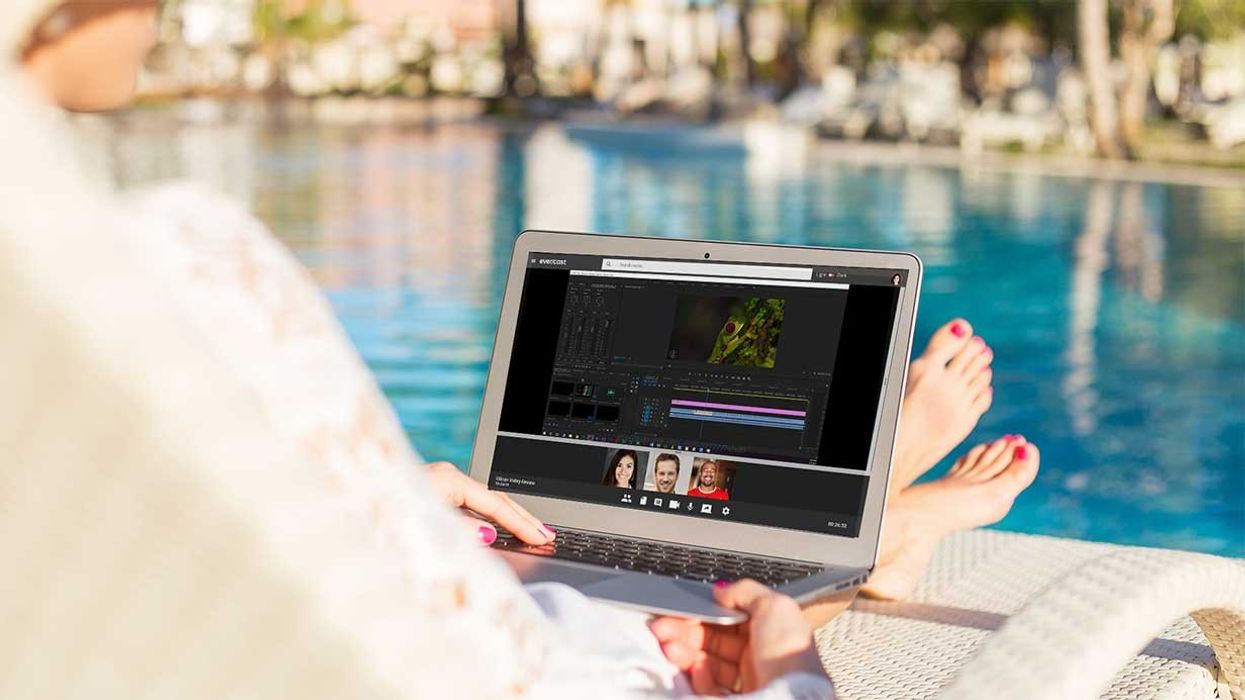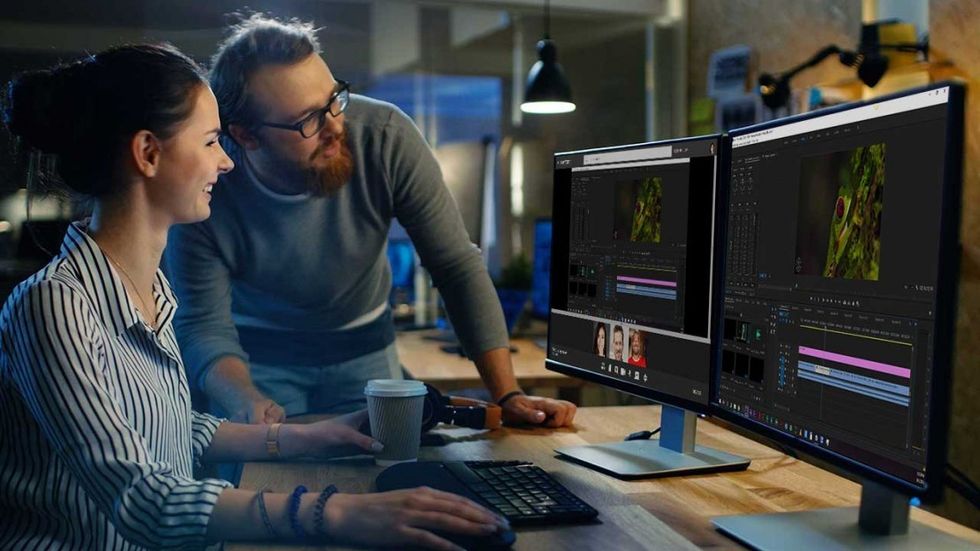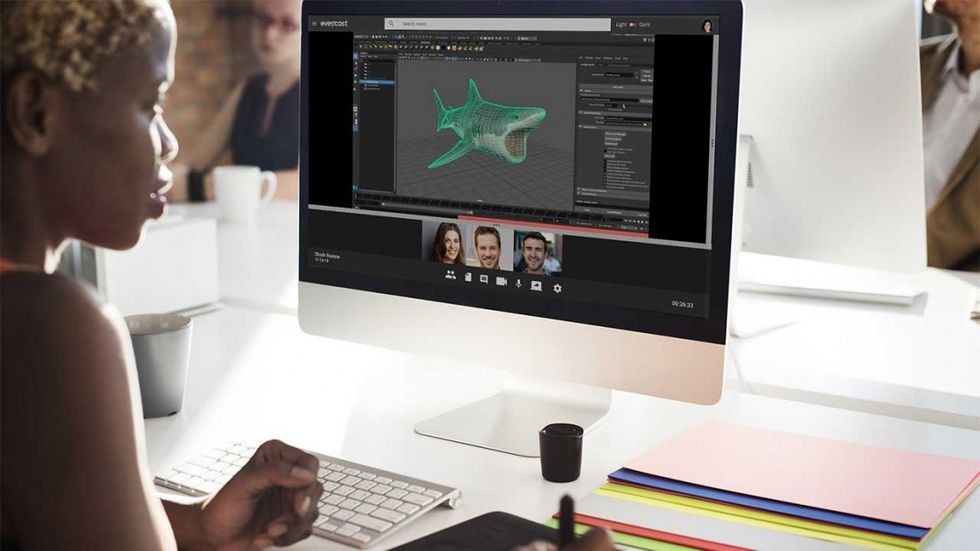Evercast Livestreams Any Post-Production Workflow to Creatives Around the World
It's videoconferencing. On steroids.

As the appetite for content grows (and film and television productions continue to send creative teams all over the world to shoot), the ability to get all creatives in one place at one time to collaborate becomes more challenging and more expensive. But it doesn't have to be, thanks to a new collaborative tool: Evercast.
When Evercast co-founder Brad Thomas was producing YouTube videos at his previous company, he couldn't find a simple, effective way to share content for feedback with clients who weren't in the same geographic location. In his search for a solution, Thomas realized he needed to build one. Along with his co-founder Alex Cyrell, Thomas started work on Evercast, soon bringing on renowned editor Roger Barton (World War Z, multiple Transformers films, Star Wars Episode III) as the third co-founder to help build a robust, secure, easy-to-use collaborative tool to allow editors to share post-production workflows online in real time.
Already deployed on major studio projects, Evercast is revolutionizing how creative teams are collaborating during post. "It's really videoconferencing at heart with next to no latency. Videoconferencing on steroids," says Thomas, specifically tailored to the needs of editors, directors, producers, and other creatives.

Evercast is platform-agnostic and can even stream from editing systems that aren't connected to the internet by connecting another internet-enabled device, such as a laptop, via HDMI cable to share the monitor. Evercast sessions can be recorded, including video and audio, and stored in the cloud for future reference so editors can pull up a director's audio notes on specific edit points after the session. Timestamped notes can also be captured in text during an Evercast session, enabling editors to pinpoint the exact moment when a note was made during playback. Additionally, Evercast allows drawings that can be saved as annotations.
The tool can be used to stream audio recording and mixing sessions as well as video effects sessions. Clients are already finding more unexpected ways to use the new tool. One company is using Evercast for table reads of scripts, beaming footage from four webcams pointed around the table to executives located around the world.

Security of content is a major concern, which is why Evercast provides enterprise-level security that has been approved for use by all of the major studios. When asked if Evercast will become more widely available for indie productions, Thomas said that the company has plans to package Evercast in a way to work financially for the indie community in the future, but Evercast is currently inundated with requests from the studios, purely through word-of-mouth. Sounds like a good problem to have.
To learn more, check out Evercast's website.













